8 Types of Eggs You Can Eat
The cost of chicken hen eggs has us all a little squeamish right now! But, did you know there are at least 8 other types of eggs you can eat? If you’re allergic to eggs, this post possibly isn’t for you! However, for most people, eggs are an important part of their diet. And while hen eggs may be the most common type of egg that you’ll come across at your local grocery store, that doesn’t mean there aren’t other types of eggs that are also worth trying.
Did you know that a single ostrich egg is equivalent to 24 large hen eggs? Or that duck eggs contain a greater amount of protein than hen eggs? Or that goose eggs are said to pair nicely with asparagus along with truffles.
Most of the eggs we’ll discuss today are bird eggs, but we’ll get acquainted with at least one from a reptile. We’ll find out that a number of eggs are larger eggs than your standard hen egg from chickens. Let’s explore some fun options you can consider.
8 Types of Eggs You Can Eat
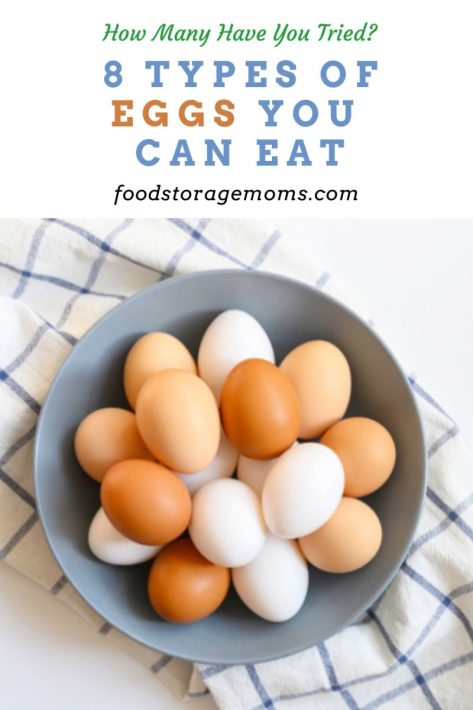
Types of Eggs You Can eat
While most of the eggs that I’m about to share with you are in fact harder to get your hands on, there are several reasons why you should consider trying them at one point or another. Some of them have more flavor, larger egg yolks, and less cooking time, while a few of them simply just look better. Curious about which ones they are? These are 8 eggs that you should try eating besides chicken eggs.
Egg Recipes to Check Out:
- The Best Egg Salad Sandwich Recipe Ever
- Egg White Breakfast Bowl
- Breakfast Egg Muffins
- Eggnog Pancakes And Eggnog Syrup
1. Duck Eggs
Can’t afford your typical white chicken eggs anymore? Duck eggs are very similar to hen eggs, both in size and cookability. They usually have a larger yolk and a thicker shell which helps them stay fresh for a longer period of time. For the most part, duck eggs are white or yellow, but depending on the breed of duck, you can also find them in black, gray, brown, and green colors. Once it’s been cooked, you’ll notice that duck eggs have a smoother and richer taste to them than hen eggs.
They contain a great deal of protein, calcium, potassium, and vitamin B complex, but the downside is that they are much higher in dietary cholesterol and calories than a typical hen egg. However, if you desire fluffier omelets, and when cooking pastries, you’ll have chewier cookies, or a more elevated cake. I’d encourage you to give duck eggs a try and experience the difference. 11 Easy Ways To Prepare Eggs
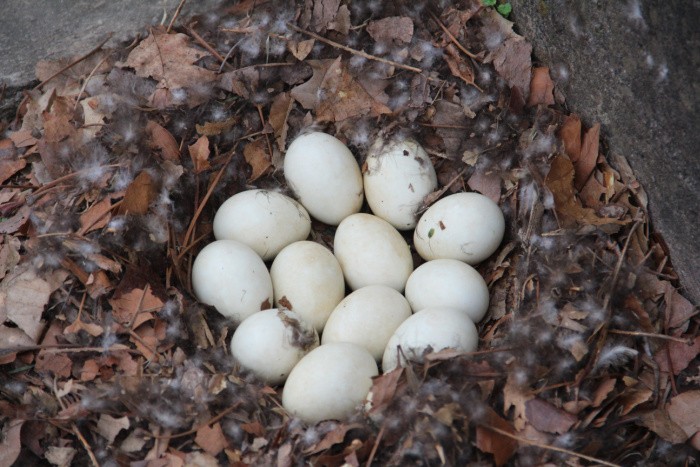
2. Goose Eggs
The average goose egg is equivalent to about 2 1/2 hen eggs. From a nutrition standpoint, they have high levels of protein, iron, selenium, and vitamins A, B, D, and E. But keep in mind that they also contain about 4 times the calories and 6 times the cholesterol, so you do need to be careful with your egg consumption and how often you eat them.
Some people will tell you that goose eggs taste bland compared to hen eggs, while others insist that they taste very similar but creamier and with a richer flavor. Most geese breeds tend to produce eggs between the months of March and May, so that will be the best time for you to get your hands on this egg variety.
Geese eggs are healthy eggs, and they are one of a number of unique types of edible eggs. For me, I think it’s just getting past the standard white eggs we are all so used to eating and being willing to try something new and different for a change. Classic Deviled Eggs
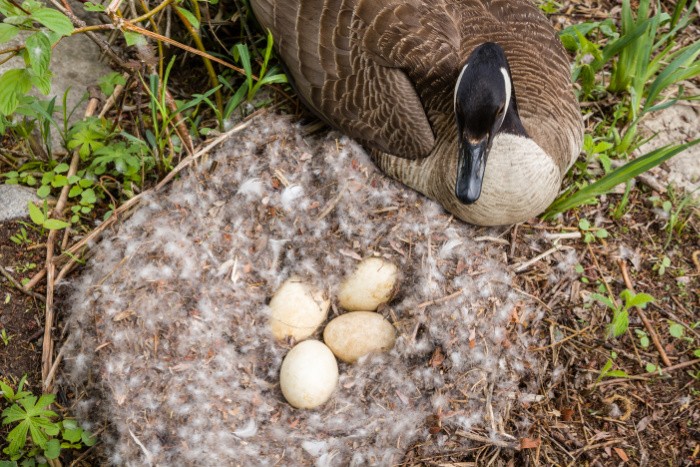
3. Ostrich Eggs
The ostrich egg is the largest in the world, about 20 times larger than the average hen egg. But that also means that it’s one of the most expensive eggs in the world. However, with just only a single ostrich egg you could feed an entire family and still have leftovers. The cream-colored shell is much thicker and harder to crack, usually requiring tools like a mallet and a serrated knife to get one open. That’s intense, right?
People say that ostrich eggs taste very similar to hen eggs but with more of a butter taste to them. But be warned, they contain an astonishing 2,000 calories in each egg. Wowsers! Other than that, ostrich eggs have similar nutritional content to that of chicken eggs. Nothing like a giant ostrich egg for breakfast, lunch, or dinner.
Hey, in a world where edible eggs are hard to come by, I need to be more open-minded, and really wouldn’t mind trying different kinds of eggs, like an ostrich egg.
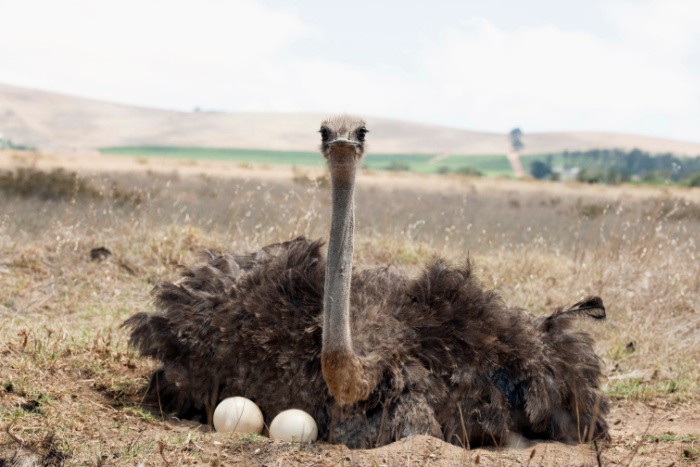
4. Pheasant Eggs
Pheasants are mostly hunted in the wild, but there are some farmers that raise and collect their eggs as well. Pheasant eggs would tend to be considered more free-range raised eggs. Their eggs are slightly bigger than chicken eggs while providing you with a rich flavor that’s similar to quail eggs. The common pheasant can lay as many as 15 eggs at one time, and depending on the breed of bird, can lay eggs with shells the colors of beige, brown, and pale green.
Pheasant eggs are rich in amino acids, as well as vitamins B, and D. All of these nutrients work together to help strengthen your immune and nervous system, along with your brain, muscles, skin, and bones. Wouldn’t it be fun to try some pheasant eggs along with freshly cooked bacon?
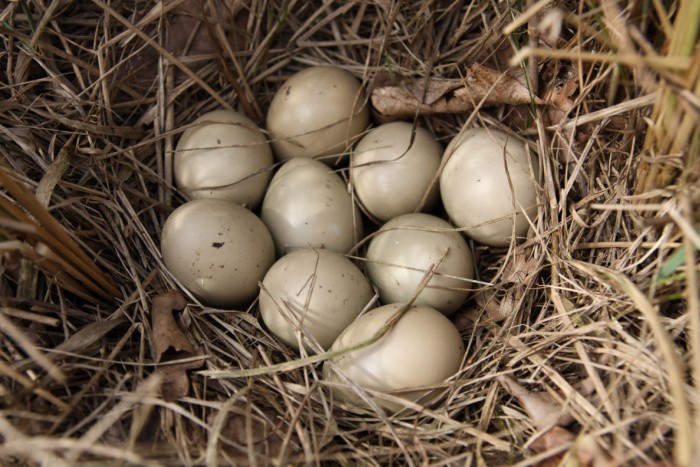
5. Turkey Eggs
Turkey eggs are the least common of them all and can only be found in the backyards of some farmers. They look similar to chicken eggs with a few minor differences; they have spotty, cream-colored shells and tend to be slightly bigger than a typical hen egg.
The flavor of turkey eggs is often described as being more intense than chicken eggs, while having an earthy quality to them. Nutritionally speaking, turkey eggs provide you with ample amounts of protein, vitamins A, B12, D3, and E as well as omega-3 fatty acids and calcium. All in all, these make for great breakfast or lunch options when paired together with your favorite veggies! These would probably taste great as hard-boiled eggs.
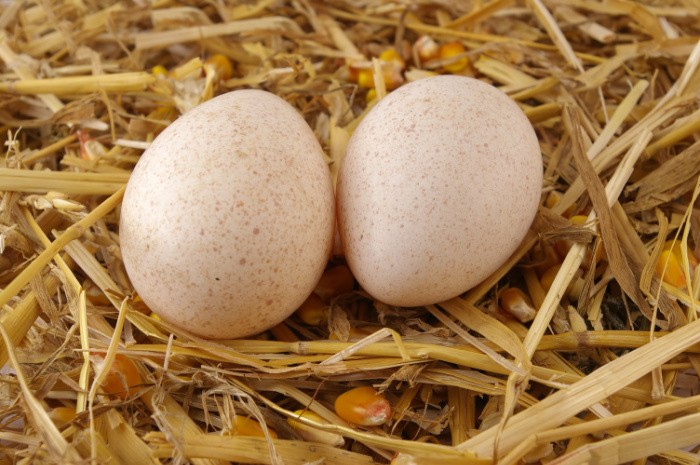
6. Quail Eggs
Quail eggs can be found at most Asian supermarkets and specialty stores, as well as from farmers who raise quails commercially. They come in a variety of colors such as white, brown, black, and even speckled varieties! Quail eggs are about the size of your fingertip, which makes them perfect for little snacks or appetizers that you can easily pop into your mouth.
In terms of taste, some say they have an intense flavor, while others describe them to be milder than chicken eggs. Quail eggs contain high levels of B vitamins and minerals essential for healthy skin and hair while also being low in calories, making them a great snack.
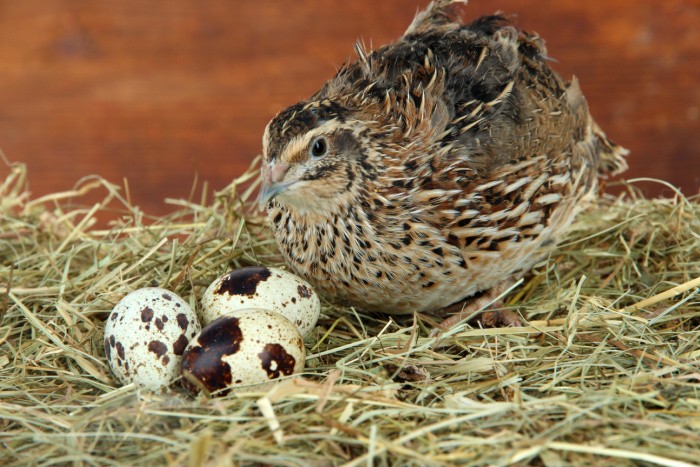
7. Pigeon Eggs
Pigeon eggs are usually collected from wild-caught birds and are rarely found in your local supermarket or farmers’ market. But if you do happen to find some, they usually come in either a deep green or blue shade and are about the size of table tennis balls.
When it comes to taste, people compare them to quail eggs but with a slightly sweeter flavor. Nutrient-wise, pigeon eggs contain ample amounts of iron, protein, and various vitamins essential for our health. All in all, these make for great snacks that can be enjoyed raw, but I prefer them cooked. I say give these unusual eggs a try! Until egg production picks back up and egg prices go down, we may all be forced to try different types of eggs. 11 Ideas for Leftover Egg Cartons

8. Crocodile Eggs
That’s right folks, let’s talk about crocodile eggs! Now how many of you honestly thought that I’d bring this one up? But as it turns out, crocodile eggs are considered to be a delicacy around the world and are also very good for you. The flavor of crocodile eggs has been described as strong along with having a fishy taste to them.
But don’t let their unique taste turn you away when considering your meal dishes because they also provide you with a good source of protein, calcium, and omega-3 fatty acids. All in all, crocodile eggs make for a great snack or meal, but never attempt to steal an egg on your own to find out!
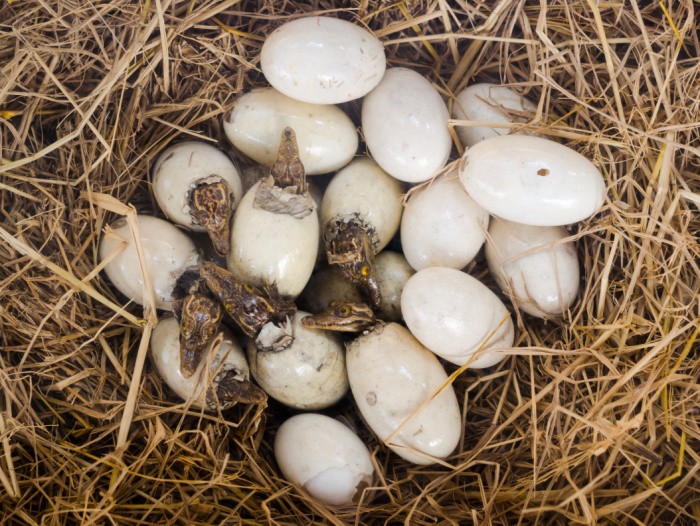
Other Types of Eggs You Can Eat
- Emu Eggs
- Other Reptile Eggs
- Game Birds Eggs
- Fish eggs
- Guinea fowl eggs
- Gull eggs
More Egg Tips
- How Long Are Eggs Good For?
- 15 Surprising Uses for Eggshells
- How To Use Powdered Eggs
- How to Freeze Eggs: Everything You Need to Know
Final Word
There you have it, 8 unusual types of eggs that can be enjoyed in many recipes or just simply for breakfast or as a snack. Each type of egg that I mentioned above is unique, not only in size but also in taste and appearance. Plus, it’s fun to try something new besides eating chicken eggs all the time.
So, which of these are you interested in trying? I’d love to hear from you! Since you can’t always get your hands on regular chicken eggs, it might be time to try out some of these unconventional eggs. Eggs are some of the most nutritious foods available! Some of the most common types of eggs we don’t even know about because we’re so busy eating regular white eggs. May God Bless this world, Linda
Copyright Images: Goose Eggs AdobeStock_134266243 By Lorne, Duck Eggs AdobeStock_388661551 By Sandra, Baby Crocodile Eggs AdobeStock_51290691 By showcake, Two Pigeons with Eggs AdobeStock_263623610 By Jantra2018, Quail with Eggs AdobeStock_58369131 By Africa Studio, Ostrich with Eggs AdobeStock_60261016 By elsahoffmann, Pheasant Eggs AdobeStock_89297335 By Holbinski, Turkey Eggs AdobeStock_2143275 By Jovan Nikolic, Chicken Eggs AdobeStock_333429088 By Ksenia

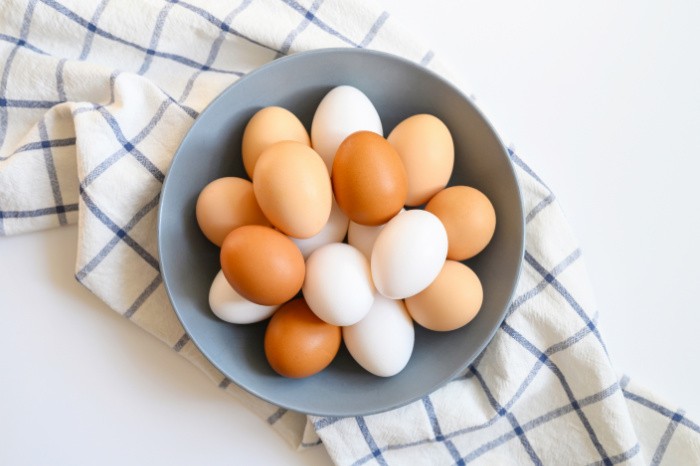


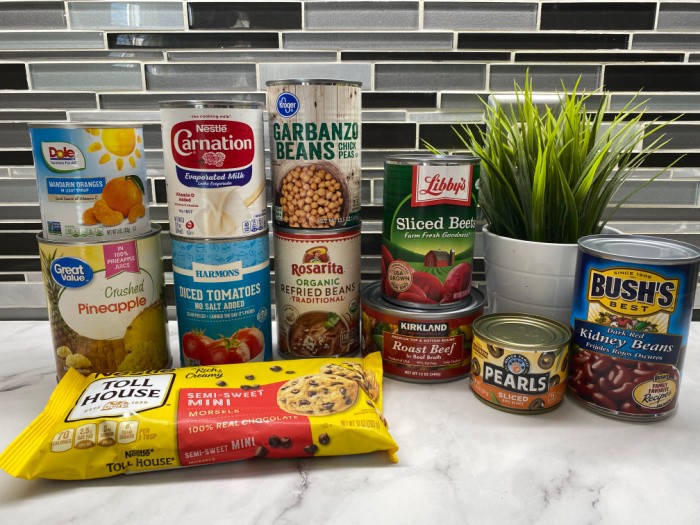
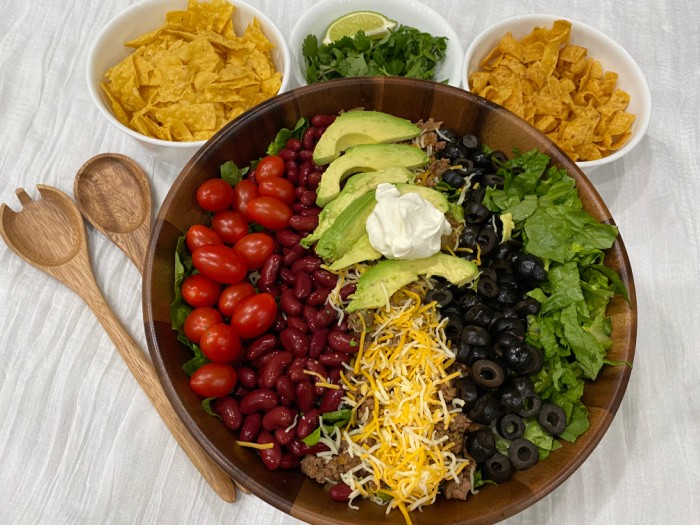








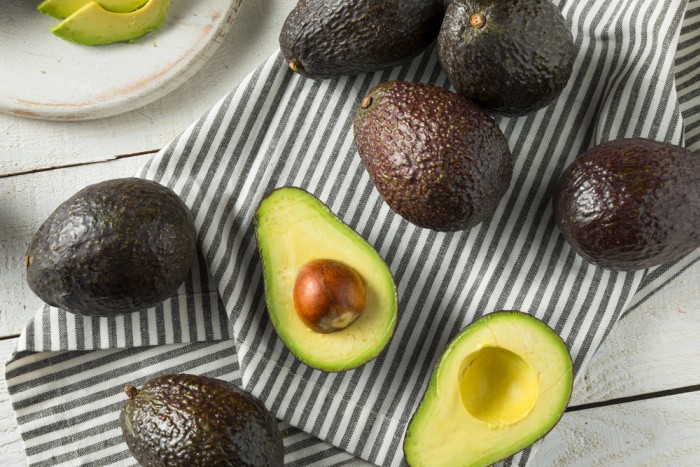








My niece got some ducks. The egg yolk tends to stay together better when ya flip it.
I love pickled quail eggs!
I’m working out coop expansion plans now for more chickens here at the house.
Hi Matt, oh nice about the ducks!! So many people here make pickled quail eggs, love it! Yay for adding a coop expansion for more chickens! Send me pictures when you get it done! Linda
Linda,
Pat is allergic to chicken eggs, so cost of eggs has been very high for us already. We source duck eggs, which she can eat, and they are much more expensive than chicken eggs. Further, since she is also gluten intolerant, she has to make her own baked goods which also need the duck eggs. Luckily, duck eggs tend to be much larger than chicken eggs, so she can often get by with less eggs than a recipe calls for. Duck eggs also tend to last much longer than chicken eggs, so we have 40 duck eggs shipped to our house usually once per month for her use. Luckily(?), I can still eat chicken eggs which to us are less expensive than duck eggs even at today’s prices. LOL!!
Hi Harry, I had no idea you could have duck eggs shipped to your home, that’s awesome! It seems so funny we have to look for alternatives for eggs but we have to! Luckily we can still get chicken eggs! Gluten issues and allergies to eggs are tough. I’m glad she’s learned to work around it. Linda
Hey Linda,
I think the comment below was actually meant for you.
Hi Harry, thank you my friend, Linda
I am very thankful we have chickens.. we have been.able to bless others with eggs when the stores are out. In selling the eggs, we also are feeding our chickensbabies. Win, win.
Really love your site!!!! Have been learning so much and it has really helped me organize and prep for what is to come.. thank you for all your hard work and willingness to share!
Hi Lisa, oh you are so nice, thank you for your kind words!! I admire those families who can raise chickens, what a great skill to have and helping others be able to get eggs as well. Love it! Linda
First of all, I imagine the eggs of an Emu would be similar to an ostrich.
Second thing is that I have eaten goose, freshly killed and cooked the same day and the meat is kind of juicy or tastes like it has a bit of oil or butter more like the dark meat of chicken, but not shockingly different and very good. I would surely try goose or duck eggs.
If we raise birds, we can choose to keep only chickens, but we might find good deals on other breeds and they might be more adaptable or desirable for our space and schedule. Some may be easier for us to keep.
This brings me to something I’m going to share here. The Muskovy ducks which many people here find so adorable is an invasive species and can be very violent. Wildlife laws require they be eradicated and never fed. If you want to keep them, you are required to keep them totally captive. You can take their eggs and you can hunt them as long as you kill them.
It seems contradictory to let people keep them even with strict requirements, but…. they lay a lot of eggs and the provide a good meal, thus one of my plans is to capture them and use them as a food source if I find it hard to buy livestock and to be able to increase my supply of eggs and meat without having to purchase the birds. Due to their hardy nature and being tough to kill and their ability to lay eggs quickly and in large numbers, if others begin to hunt them, having my own at home would ensure my household the opportunity to benefit from this animal. And you find them at almost every rentention pond and wooded areas near water.
I love this article because out of the box thinking and versatility is important for preppers.
Hi Frank, thank you for your kind words, my friend. Whew, I Googled that Muscovy duck to make sure it wasn’t the duck I shared on my post! LOL! Thank you for the heads-up on that one! I learn something new every single day! Linda
Guinea fowl–we had some one summer, but an owl ended up getting them one by one. So, we never had the chance to try either eggs or meat–but those who have done so seem to approve. Moreover, guinea fowl are apparently much better than chickens at finding and eating ticks. I understand it’s best to keep guineas confined for a while (longer, I gather, than for hens) to convince them where “home” is; they are not quite as domesticated.
They *are* noisy (yes, I think even my dad was a bit relieved when the owl picked off the last one!) However, this makes them good early-warning against predators when guineas are kept with hens.
Hi Rhonda, oh my gosh, we had owls in Southern Utah. They would land on our neighbor’s picnic table, and they would text us to watch out for the owl (our little dogs). Yikes, they will eat dogs I guess!! Thankfully the neighbors would text each other if a coyote or owl was nearby. It’s scary when we are trying to produce our own food. Linda
Hi Linda, good article. I grew up eating duck and goose eggs and loved them. They were mingled with our chicken. Geese are excellent guards for a flock of birds or your yard. If they spot anything unusual they make an unholy racket and will attack and drive whatever it is away. Never get near a goose’s bill or when they are charging with wings extended. That’s how they defend the flock and drive off intruders. There is tremendous strength in those wings. If you get in the way of one it will knock you off your feet and you will get bruises, and pinching with their beaks is a really painful experience. They also keep an eye to the sky for predatory birds. We had problems with broad tailed hawks, & eagles(golden & bald) dusk after sunset we also had great horned & barn owls that would set them to bellowing too. We never lost a bird to any of them, sometimes I thought they were deliberately taunting the geese to set them off, and see us come running as well. I would not recommend geese or roosters for backyards on the outer limits of a city or in highly populated suburbia. They will annoy and aggravate the neighbors. But in more rural settings with larger acreage they are ok.. BTW over the Winter I’ve been able to consistently, get medium size eggs. They are a couple dollars cheaper per carton than larger eggs. The shelves are stripped of the larger sizes any how. They taste the same and the cholesterol level is better for us. As March progresses there should be more more eggs coming to the markets as the Spring flush increases supply. If the egg farmers started new flocks of chicks after the Avian Flu last Summer. Those chicks should be mature enough to begin laying then. I doubt we’ll see any price drop though, the middle men aren’t going to give up their profit margin. Just because the supply becomes more stable or increases, doesn’t mean they will lower prices, they’ve held us hostage for months now, people are willing to pay these high prices for eggs, so they won’t drop the prices consumers are accustomed to paying for their eggs now. Oh well.
LOL, the Roman Legions actually kept geese in their camps–as “guard dogs!”
Hi Rhonda, oh my gosh, this is interesting, guard dogs! I love it! Linda
Hi MaryAnn, oh I love your comment, I love to learn new things. We have geese that live in our neighborhood, there is a pond for fishing a block away. They live closer to the pond most of the time but wander all over. They walk around the neighborhood and we are very respectful when they cross the streets. They look so beautiful, and the babies, oh you get it. I love it. I had no idea their wings could knock us over, not that I would get that close to them! LOL! It’s good to know that the new flocks of chickens will be coming soon. Linda
Definitely keep your distance, in fact if they are Canada geese doubly so . Avian flu is being transmitted by migratory fowl. There is conclusive evidence that wild ducks are carrying it. Since both land to feed and rest on the same bodies of water each night, it has likely already crossed over. Also handle any calling cards they may leave with great care and a mask on. Here we are supposed to leave them be and call the fish and wild life service to remove and test them. I’m concerned that it might crossover to pigeons. That’s when it might finally be able to relate the bridge to crossover to humans, since they are everywhere, touching everything. The one wild bird that so far has seemed to evade it are the wild turkeys. They appear healthy as horses and are multiplying like rabbits. Enough to be a real problem in our neighborhoods. I feel they should research the possibility that the turkeys might have a natural immunity that could be synthesized into a vaccine for commercial poultry, to protect them. The numbers are now sufficient now and climbing.
Hi MaryAnn, oh goodness we have pigeons here as well. They sit on the top of our fence railings. Thank you for the info!! Linda